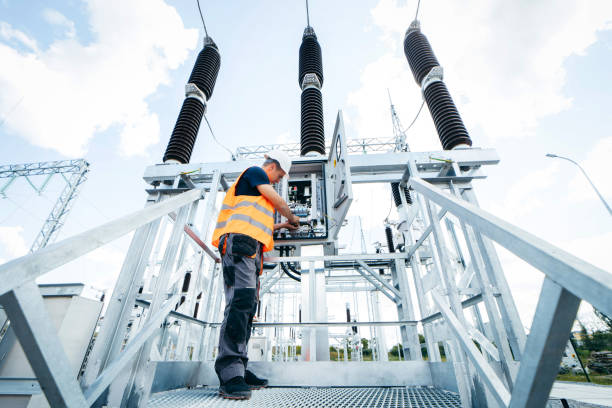How to Work as a Mechanic in Canada with Visa Sponsorships: Visa Types, Immigration Pathways, Requirements, and Job Roles
Canada’s expanding automotive, construction, and industrial sectors have created a steady demand for skilled mechanics to support the maintenance and repair of vehicles and machinery. This demand, combined with attractive wages and various immigration pathways, makes Canada an ideal destination for mechanics from around the world.
Who is a Mechanic and What Do They Do?
A mechanic is a skilled tradesperson who inspects, maintains, and repairs vehicles and machinery. Mechanics work in various fields, including automotive, heavy equipment, diesel, and industrial maintenance.
- Primary Responsibilities: Mechanics diagnose issues, perform repairs, and maintain equipment to ensure optimal functionality. They handle tasks such as engine diagnostics, brake repairs, suspension maintenance, and system checks.
- Importance of Mechanics: Mechanics play a critical role in maintaining Canada’s infrastructure by keeping vehicles, heavy equipment, and industrial machinery operational. Their expertise ensures safety, efficiency, and productivity across multiple industries.
With diverse job roles and areas of specialization, mechanics are essential to Canada’s economy and infrastructure.
Why Work as a Mechanic in Canada?
Canada offers an excellent working environment for mechanics, with opportunities for career growth, competitive wages, and job security.
- High Demand for Skilled Trades: Canada’s ongoing infrastructure projects and transportation needs have created high demand for skilled mechanics, especially in provinces with active industrial and construction sectors like Alberta, Ontario, and British Columbia.
- Competitive Salaries and Benefits: Mechanics in Canada earn competitive wages, with benefits such as healthcare, job stability, and opportunities for advancement. Earnings vary based on specialization, location, and experience, with positions in urban areas and industrial sectors often paying more.
- Opportunities for Career Growth and Specialization: Mechanics in Canada can specialize in areas like heavy equipment repair, diesel engines, or industrial machinery. Experienced mechanics can also pursue supervisory or management roles in workshops or industrial settings.
For skilled mechanics, Canada offers a promising job market with ample opportunities for advancement and specialization.
Visa Sponsorship Opportunities for Mechanics
Canada provides various pathways for mechanics to secure visa sponsorship, enabling them to work and settle in the country.
- Finding Employers Offering Sponsorship: Job search platforms like Job Bank, Indeed, and Workopolis often feature positions with visa sponsorship. Large automotive repair chains, trucking companies, and industrial employers are more likely to sponsor international mechanics.
- Programs Supporting Sponsorship: Canada’s Temporary Foreign Worker Program (TFWP) facilitates visa sponsorship for skilled trades, including mechanics, to fill labor shortages in various industries.
- Employer Requirements for Sponsorship: Employers seeking to hire international mechanics must complete a Labour Market Impact Assessment (LMIA), demonstrating the need for foreign workers. Mechanics with specialized skills or certifications are often preferred candidates for sponsorship.
- Networking and Trade Associations: Joining trade associations, such as the Canadian Automotive Repair and Service Council (CARS), can help mechanics connect with potential sponsors and stay informed about job openings in Canada.
Visa sponsorship provides mechanics with a pathway to work legally in Canada while enjoying career stability and growth opportunities.
Visa and Immigration Pathways for Mechanics
Mechanics have several visa and immigration pathways available for working and living in Canada, based on job offers, experience, and goals.
- Express Entry System: The Federal Skilled Trades Program (FSTP) under the Express Entry system is designed for skilled tradespeople, including mechanics, to apply for permanent residency. This program evaluates candidates based on work experience, education, and language skills.
- Provincial Nominee Program (PNP): Provinces like Alberta, Ontario, and British Columbia actively recruit skilled trades through PNP streams. PNPs allow provinces to nominate mechanics for permanent residency based on local labor needs, making it easier for mechanics to find long-term employment.
- Temporary Work Permits and Employer Sponsorship: Mechanics with job offers from Canadian employers can apply for temporary work permits through the TFWP. The LMIA process enables employers to sponsor mechanics, providing temporary work opportunities.
- Open Work Permits for Accompanying Partners: Spouses or partners of mechanics moving to Canada can apply for open work permits, allowing them to work while the primary applicant is employed.
- Pathways to Permanent Residency for Skilled Workers: Mechanics on temporary work permits can transition to permanent residency through programs like the Canadian Experience Class or PNPs, enabling them to settle permanently in Canada.
These pathways provide mechanics with flexibility, whether they plan to work temporarily or seek permanent residency in Canada.
Eligibility Requirements for Mechanic Visas
To qualify for Canadian work visas, mechanics must meet specific educational, certification, and language requirements.
- Educational Background and Trade Certification: Most employers require mechanics to have completed secondary education and trade-specific certifications or apprenticeship training. Having a Red Seal certification or equivalent is highly beneficial for employment.
- Professional Experience and References: Documented experience as a mechanic is essential. Applicants should prepare a resume detailing past work experience, references from employers, and, if possible, a portfolio of completed projects.
- Language Proficiency: Many visa programs require applicants to demonstrate proficiency in English or French, particularly for Express Entry and some PNPs. Language tests like IELTS or TEF are commonly accepted.
- Proof of Financial Independence: Certain visa applications, such as Express Entry, require applicants to show proof of financial stability, including savings or income statements, to demonstrate their ability to support themselves in Canada.
Meeting these eligibility requirements is crucial for a successful visa application and prepares mechanics for a smooth transition into the Canadian job market.
Application Process for a Mechanic Visa
The application process for a work visa as a mechanic involves several key steps.
- Choosing the Right Visa Pathway: Mechanics should assess visa options based on job offers, career goals, and long-term plans. Selecting the appropriate visa pathway can improve the chances of success.
- Collecting Required Documents: Gather essential documents, including trade certifications, reference letters, proof of work experience, language test results, and financial statements.
- Submitting the Application: Complete the online application, upload all necessary documents, and pay the required fees. Processing times vary depending on the visa type and the applicant’s country of origin.
- Preparing for Arrival in Canada: Plan your relocation, familiarize yourself with Canadian work standards, and join local trade associations to ease the integration process.
Following these steps ensures a smoother application process and prepares mechanics for a successful transition to the Canadian workforce.
Licensing and Certification for Mechanics in Canada
Licensing and certification for mechanics vary by province, with requirements based on regional labor standards.
- Provincial Licensing Requirements: In some provinces, automotive repair is a regulated trade, requiring mechanics to obtain provincial certification or licensing. Research the specific licensing requirements for the province in which you plan to work.
- Red Seal Certification: The Red Seal Program is a nationally recognized certification for skilled trades in Canada. Mechanics with Red Seal certification can work across provinces without needing additional exams, improving job flexibility and mobility.
- Continuing Education and Specialized Training: Mechanics can pursue advanced training in fields such as diesel engine repair, diagnostics, or electric vehicle maintenance, which can enhance career prospects and increase earning potential.
Licensing and certification ensure that mechanics meet Canadian industry standards and enhance their employability across the country.
Job Roles and Career Paths for Mechanics in Canada
Mechanics in Canada can pursue various roles, depending on their experience and specialization.
- Automotive Service Technician: Specializes in diagnosing and repairing passenger vehicles, including cars, SUVs, and light trucks.
- Diesel Mechanic: Works with diesel engines commonly found in trucks, buses, and heavy construction equipment, focusing on repair and maintenance.
- Heavy Equipment Mechanic: Specializes in maintenance and repair of large machinery, such as excavators, loaders, and cranes, commonly used in construction and agriculture.
- Industrial Mechanic: Maintains and repairs machinery in industrial settings, including factories, processing plants, and manufacturing facilities.
- Maintenance Supervisor: Experienced mechanics may progress to supervisory roles, overseeing teams of mechanics, managing schedules, and coordinating repair projects.
Each role offers mechanics opportunities for specialization, career growth, and higher earning potential.
Frequently Asked Questions
Q: Do mechanics need a job offer to apply for a work visa in Canada?
A: For certain visa types, like the Temporary Foreign Worker Program, a job offer and employer sponsorship are required. However, the Federal Skilled Trades Program under Express Entry does not require a job offer for permanent residency applications.
Q: Is a trade certification necessary to work as a mechanic in Canada?
A: Yes, many employers prefer mechanics with trade certification. Having a Red Seal certification, in particular, improves job prospects and allows mechanics to work across provinces.
Q: How long does the visa application process take for mechanics?
A: Processing times vary depending on the visa type. The Temporary Foreign Worker Program may process work permits within weeks, while Express Entry applications may take several months.
Related Posts

Grocery Clerk Jobs in British Columbia, Canada with Visa Sponsorships – Earn $20+ per hour

Tourland Travel Ltd. Is Hiring Tour Guide, Calgary, Canada: Earn $18/ hr with Visa Sponsorship Opportunities
